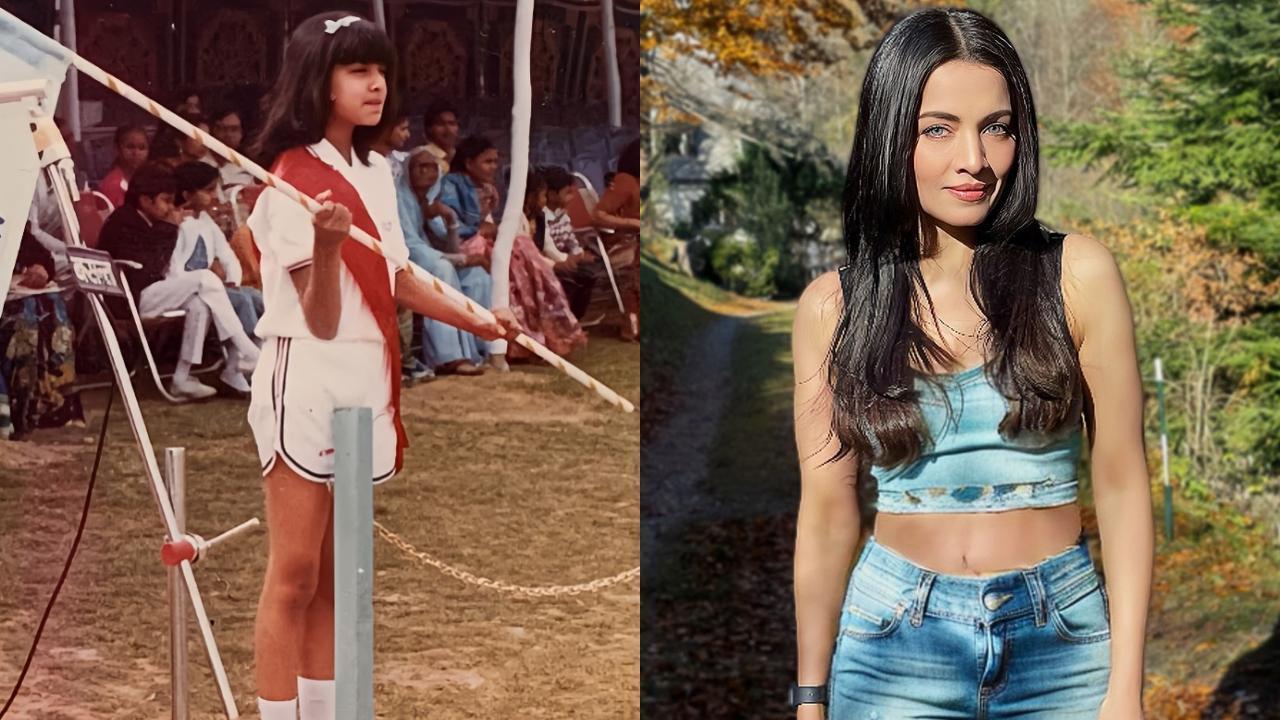
The tragic murder and rape of a Kolkata doctor has sparked widespread outrage and brought the issue of women’s safety to the forefront of national discourse. Amid this heightened concern, actress and former beauty queen Celina Jaitly has shared her own troubling experiences from her school days, shedding light on the long-standing and pervasive issue of victim-blaming in society.
In a heartfelt and candid Instagram post on Saturday, Jaitly shared an image of herself from the sixth grade along with a poignant message: “THE VICTIM IS ALWAYS AT FAULT.” She recounted various instances where she was harassed, shamed, and made to feel responsible for the inappropriate behavior of others.
Celina detailed how boys from a nearby university would wait outside her school, following her rickshaw and making catcalls every day. She tried to ignore them, but their harassment escalated to throwing stones in an attempt to get her attention. Shockingly, no bystanders intervened to stop the abuse.
The harassment didn’t end there. Celina was subjected to victim-shaming by her own teachers. She recalled a teacher blaming her for attracting such attention because she was “too westernized,” didn’t wear loose clothes, and didn’t tie her hair in two braids with oil. This toxic mentality inflicted a deep psychological toll on Celina, causing her to blame herself for the abuse she endured.
“I was told by a teacher: It was because I was ‘too westernized and did not wear loose clothes and did not tie my hair in two braids with oil; it was my fault!’ For years, I ran the words of this teacher over and over in my mind, convinced it was MY FAULT,” Celina wrote. This message she internalized only deepened her trauma when, one morning, a man exposed himself to her while she was waiting for her school rickshaw. It was another incident she kept to herself, bound by the guilt instilled in her by the societal norms perpetuated by her teachers.
But the nightmares didn’t stop there. Celina revisited an incident from the 11th grade. She recounted a chilling episode where boys from the university cut the wire of her scooter’s brakes because she ignored their heckles and lewd remarks. After narrowly avoiding a serious accident by jumping off her moving scooter, she faced physical injuries, damage to her scooter, and psychological trauma. Yet again, the response she received was one that placed blame squarely on her shoulders. Her teachers insinuated that she brought this treatment upon herself by behaving in a ‘forward’ manner—riding a scooter, wearing jeans, and having open hair.
.
“My male classmates were scared for me and informed our teachers. My class teacher called me and told me, ‘You come across as a FORWARD type of girl, riding a scooty and wearing jeans to extra classes with short open hair; that’s why boys think you are of a loose character.’ It was always my fault,” she wrote.
The constant cycle of victim-blaming profoundly affected Celina, making her feel guilty and responsible for the actions of others. The cruel irony was that, instead of receiving the protection and support she needed, she was made to feel as though she deserved the harassment.
Celina also highlighted the involvement of her retired colonel grandfather who, out of concern, began escorting her to and from school. Even his presence did not deter the boys, who continued to chase her and even made derogatory remarks about her grandfather. The sight of these boys tormenting his granddaughter and mocking him left him visibly shaken and full of dispair.
“My retired Colonel Grandfather who fought two wars for our country in his old age had to take to escorting me back and forth to school. I still remember those rude boys who chased me, even damaging my scooty. They also passed derogatory remarks on my retired colonel grandfather, making fun of him,” Celina recounted. The reflection of his disgust as he silently walked her home encapsulated the helplessness and frustration he felt.
Celina’s revelations are a stark reminder of the deep-rooted culture of victim-blaming and the urgent need for societal change. Her story underscores the importance of collective responsibility in creating a safer environment for women. As she concluded her post, she called for solidarity and the right for women to be protected unequivocally.
“It’s time to stand up and ask for our right to be protected. WE ARE NOT AT FAULT,” she urged.
Celina Jaitly’s harrowing experiences resonate with many and serve as a powerful call to action against the pervasive culture of blaming victims for the abuse they endure. Her courage in sharing her story is a sobering reminder of the changes needed to ensure that women and girls can live without fear and with the assurance that they are not at fault for the violence inflicted upon them.












